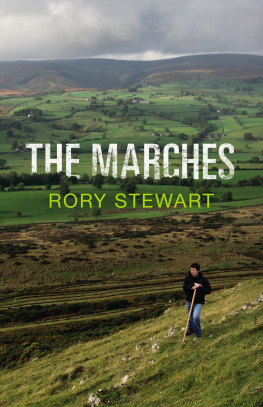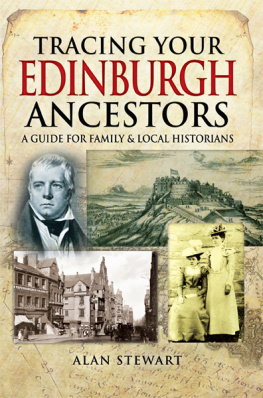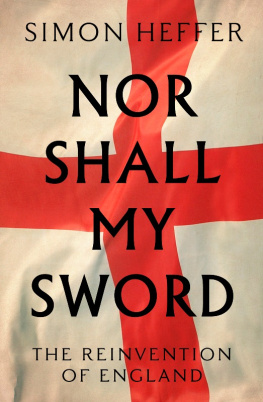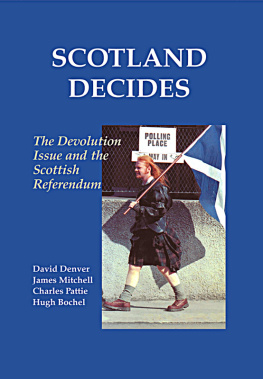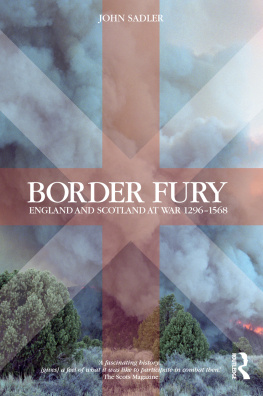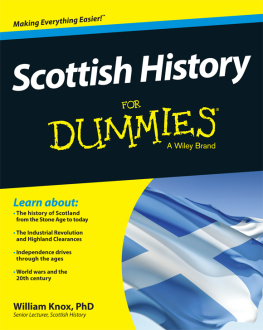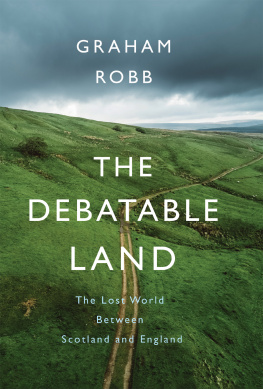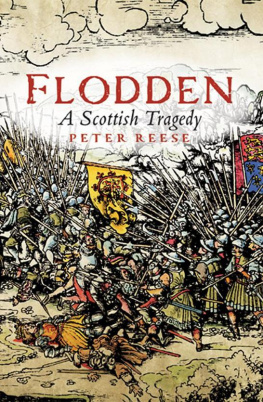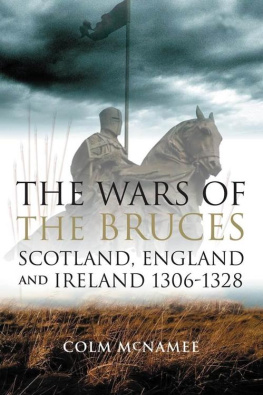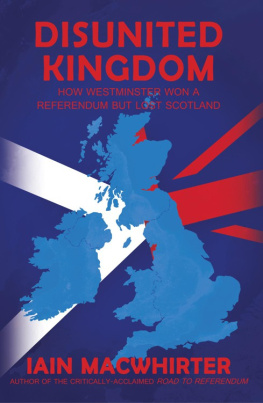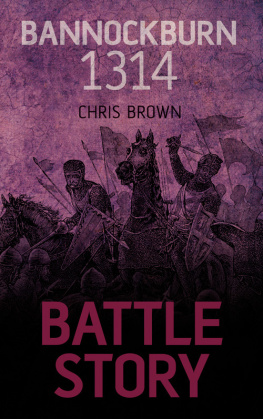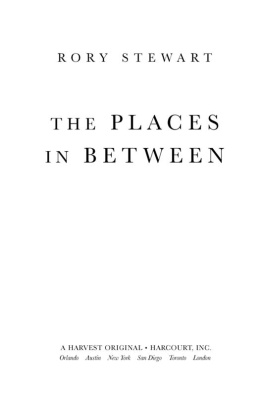Acknowledgements
To Patrick Mackie, Stephen Brown and John Hatt, who read the book in many versions, with great patience, sympathy and intelligence, and who not only improved it immeasurably but also gave me the confidence to cut nearly 300 pages of the text. To Robin Dennis, who came in at the last moment and worked her way deftly through the prose. To Andy Connell and Alastair Duncan, who provided a wise and rapid review of some of my local history.
To Felix Martin and Tommy Wide, who brought the eyes of friends to the story itself.
To Catherine Anderson, who helped me plan the solo walk. To Clare Dodd, who supported all the logistics of the journey and then transcribed almost 300,000 words of interviews from tapes, and to many others who worked closely with me throughout.
I was very lucky to have Dan Franklin as my editor. His faith in the project from the beginning and throughout is what made this project possible. He read with immense care and intelligence in draft after draft. And he gave me the unique gift of time, reworking the schedule to make sure that the book in the end was right. I have never worked with such a patient and understanding editor and I dont think I shall ever find another like him.
Thank you also to Clare Alexander for championing me and backing me through the last few years. And to, my fathers friend, Kevin Baverstock, who having done all the maps for the book which he and my father wrote about the Battle of Rauray, with great care and generosity did all the maps for this book as well.
And finally to Shoshana, my best companion, and to my mother, two people who should have dominated the book, but who chose to remain on the sidelines, and supported it with so much love, energy and tolerance of antique obsessions and late nights throughout.
Passages quoted from Scotland, Small? and Wheesht, Wheesht by Hugh MacDiarmid (Selected Poetry, 2004) are copyrighted and are reprinted here by kind permission of Carcanet Press Limited, Manchester, UK.
Lines from Lament of the Frontier Guard by Ezra Pound are reprinted by kind permission of Faber & Faber Ltd.
ALSO BY RORY STEWART
Non-Fiction
The Places In Between
Occupational Hazards: My Time Governing in Iraq
As co-author
Can Intervention Work? (with Gerald Knaus)
About the Author
Rory Stewart was born in Hong Kong in 1973. After a brief period in the Army, he joined the Foreign Office, serving in Indonesia and the Balkans. His account of the last section of his 6,000 mile walk across Afghanistan is described in The Places In Between; and his time as a deputy-governor of two provinces in Southern Iraq in Occupational Hazards. His books have sold over half a million copies, been translated into nine languages, and been awarded several prizes including the Ondaatje Prize of the Royal Society of Literature. He is now the Member of Parliament for Penrith and the Border. He lives with his wife and young son in Cumbria and London.
About the Book
His father Brian taught Rory Stewart how to walk, and walked with him on journeys from Iran to Malaysia. Now they have chosen to do their final walk together along the Marches the frontier that divides their two countries, Scotland and England. Brian, a ninety-year-old former colonial official and intelligence officer, arrives in Newcastle from Scotland dressed in tartan and carrying a draft of his new book You Know More Chinese Than You Think. Rory comes from his home in the Lake District, carrying a Punjabi fighting stick which he used when walking across Afghanistan.
On their six-hundred-mile, thirty-day journey with Rory on foot, and his father ambushing him by car the pair relive Scottish dances, reflect on Burmese honey-bears, and on the loss of human presence in the British landscape. On mountain ridges and in housing estates they uncover a forgotten country crushed between England and Scotland: the Middleland. They cross upland valleys which once held forgotten peoples and languages still preserved in sixth-century lullabies and sixteenth-century ballads. The surreal tragedy of Hadrians Wall forces them to re-evaluate their own experiences in the Iraq and Vietnam wars. The wild places of the uplands reveal abandoned monasteries, border castles, secret military test sites and newly created wetlands. They discover unsettling modern lives, lodged in an ancient land. Their odyssey develops into a history of nationhood, an anatomy of the landscape, a chronicle of contemporary Britain and an exuberant encounter between a father and a son.
And as the journey deepens, and the end approaches, Brian and Rory fight to match, step by step, modern voices, nationalisms and contemporary settlements to the natural beauty of the Marches, and a fierce absorption in tradition in their own unconventional lives.
Chronology
THE MIDDLELAND
The Middleland a term invented by my father: The geographical centre of the island of Britain. An upland landscape, whose core is the Lake District hills, the Pennines, the Cheviots and the Scottish Borders, but whose fringes extend to the Humber in the south and the Firth of Forth and Clyde in the north. A land naturally unified by geography and culture for two thousand years, but repeatedly divided by political frontiers.
ORIGINS (before AD 100)
The tribes of the Middleland in the centuries before the Roman invasion form a single cultural zone, stretching across what is now southern Scotland and northern England. Their scattered buildings and largely non-ceramic-using culture distinguish them from the ceramic/stone tower culture of Highland Scotland or the large hill forts and coinage of southern England.
MILITARY FRONTIER ( AD 100400) p. 58
The Roman wall is laid straight through the tribal territories of the Middleland, dividing them leaving the shrine of the Carvetii tribe god, Cocidius, north of the wall, while their population centre is south of it, and leaving most of the Votadini tribe, north, while their settlement at Corbridge is marooned south of the wall. The entire area, both sides of the wall, becomes a Roman military zone: there are none of the villas found in the civilian south of Roman Britain, instead the area is dominated for three hundred years by permanent garrisons of 15,000 soldiers, from regiments originally raised elsewhere in the Roman Empire.
CUMBRIA AND NORTHUMBRIA
THE OLD NORTH ( AD 400600) p. 123
When the Romans leave, the frontier-line of the wall fades, and Cumbric-speaking groups reassert themselves in kingdoms, which stretch across the wall. The Roman military zone becomes a Welsh-speaking culture known as The Old North, known for its poetry, such as the Gododdin.
GOLDEN AGE OF NORTHUMBRIA ( AD 600800)
By 600 almost all of the Middleland from the Humber to Edinburgh has come under the control of the kingdom of Northumbria a Germanic-speaking culture, which becomes one of the leading civilisations in Christendom, known for its theology, sculpture, astronomy, manuscript illumination and in particular for its historian, Bede, and its saint, Cuthbert.
NORSE INVASIONS ( AD 800900) p. 139
The invasions of non-Christian groups by sea from Scandinavia the Vikings inflict terrible damage on the Kingdom of Northumbria and in particular on the monasteries which are the heart of its civilisation.
MIDDLELAND (9001066) p. 155
By the middle of the tenth century, areas such as the Lake District are an ethnic patchwork of Cumbric-Welsh, Northumbrian-Germanic, and Norse-Viking communities. The core of the Middleland is dominated by the Cumbric kingdom of Strathclyde/Cumbria in the west and Northumbria in the east; these territories still stretch deep into modern Scotland and northern England, in defiance of the Roman wall. But the West Saxon kings of England are beginning to move north, and the Gaelic kings of Scotland are beginning to move south, squeezing the Middleland kingdoms between them.

